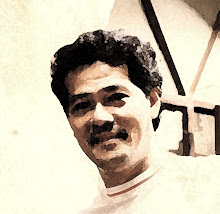Mr. Sigmund Freud saw that a third dimension of consciousness was needed to hold the id and ego in check. He termed it "superego." Unlike the id and the ego, the superego is not present at birth. It develops as a child learns which actions are socially acceptable and which are not. The superego holds society's values and moral attitudes.
The superego includes what we mean by conscience. It tells us right from wrong. A growing child internalizes rules made by parents and other adults. Gradually, this right-wrong response enters a child's own system behavior, independent of its original source.
As Sigmund Freud saw it, the superego does more than distinguish right from wrong. It also compares the ego's view of itself with an ego ideal of perfection. This ego ideal is our view of the sort of person we feel we should strive to become. We base it on our own hopes and on the kind of person others think we should be. The superego combines conscience, that tells us right from wrong, with the ego ideal, that inspires us to make things better for all. Mr. Freud viewed that conflict between the id and the superego is inevitable. A person can deal with the conflict either by directly suppressing unacceptable urges, saying no to them or by hiding them deep inside. Hiding unacceptable urges means repressing full awareness of them by keeping them in the unconscious.
Well, I was just discussing the same ego ideal to a piano student last night, giving more emphasis on balancing factors in life.
Additional knowledge, Mr. Freud.
Wherever you are, many thanks!
Wherever you are, many thanks!





5 comments:
What is the difference between egocentric at egoist? Tama ba ang spelling ko?
I met a lot of people who are so self-centered, probably because of their positions.
@ Mon,
Egocentricity and egoism are one and the same.
Egocentricity means confusing what we see and think with reality. When under the influence of egocentricity, we think that the way we see things is exactly the way things are. Egocentricity manifests itself as an inability or unwillingness to consider others' points of view, a refusal to accept ideas or facts that would prevent us from getting what we want (or think we want). In its extreme forms, it is characterized by a need to be right about everything, a lack of interest in consistency and clarity, an all or nothing attitude ("I am 100% right; you are 100% wrong."), and a lack of self-consciousness of one's own thought processes. The egocentric individual is more concerned with the appearance of truth, fairness, and fair mindedness, than with actually being correct, fair, or fair minded. Egocentricity is the opposite of critical thought. It is common in adults as well as in children.
@ Darrel,
I dislike self-centered individuals. People with narcissistic personality disorder lack a healthy emotional core. They are driven by a moment-to-moment monitoring of their worth. Since they find it difficult to provide self-worth, they seek it from external sources. They must be "right" or the center of attention; their relationships, possessions, or careers must be "the best" and "special." As in the Greek myth of Narcissus, who fell in love with his reflection, narcissistic people are in love with their image and consequently see flaws as mortal sins.
Very informative replies!
Many thanks!
Post a Comment